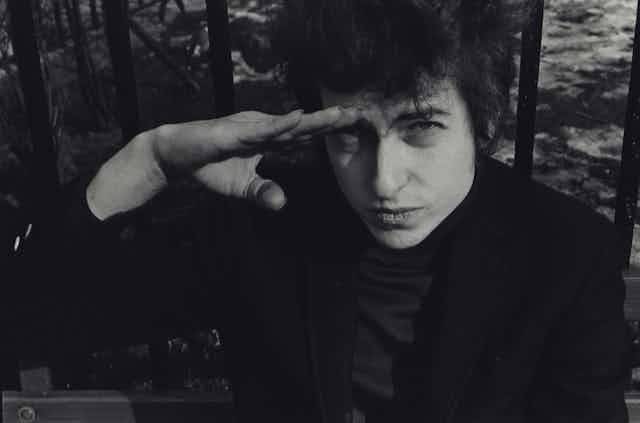In 1920, Rudyard Kipling (Nobel Prize in Literature 1907), published The Conundrum of the Workshops. This poem about review culture features the Devil as “first, most dread” critic who responds to human creative outputs with: “it’s pretty, but is it art?”, a review that hurls the makers into confusion, rivalry and anguish. What could be worse, for an artist, than to discover that what you were making is not art after all?
Social media has taken over the Devil’s role as “most dread” reviewer, and all night the twitterverse has been alive with commentators expressing their outrage at, or rejoicing over, the decision of the Nobel Prize Committee to award the Literature prize to musician and songwriter Bob Dylan. As journalist and writer Jason Diamond tweeted: “My timeline is like watching a ‘Dylan deserved the Nobel’ vs ‘Dylan didn’t deserve the Nobel’ ping pong match.”
Much of this ping-pong commentary operates less according to the rules of evidence and argument than according to the rules of quarrel; of personal taste; of anger directed at established privilege; and of teasing Boomer nostalgia.

On the Affirmative team we have not-a-poet Salman Rushdie tweeting that “From Orpheus to Faiz, song & poetry have been closely linked. Dylan is the brilliant inheritor of the bardic tradition”.
And there’s actual poet Billy Collins, who affirms the prize because Dylan’s lyrics are “in the 2 percent club of songwriters whose lyrics are interesting on the page”.
From the team for the Negative, there’s editor Chloe Angyal: “Literally zero women were awarded Nobels this year. Maybe someone can write a poignant, gravelly, somewhat atonal folk song about that”.
Or the writer Shay Stewart Bouley who tweeted about “peak white man music.” Or music journalist Everett True, who pokes fun at the committee: “Bob Dylan winning a Nobel Prize for Literature is like your third-rate English teacher at school, trying to look ‘cool’.”
Not all commentators have relied on personal taste or social politics: several observe something that struck me too: there seems to have been a category error in the awarding of this prize.
Novelist Jodi Picoult tweets: “I’m happy for Bob Dylan. #ButDoesThisMeanICanWinAGrammy?” From novelist Joanne Harris: “Is this the first time that a back catalogue of song lyrics has been judged eligible for a literary prize?” More bluntly, from novelist Jeff VanderMeer:
Is it possible that this award was determined according to the sort of logic set out by The Logician in Ionesco’s Rhinoceros: The Nobel Prize in Literature is awarded only to those who have created literature. Bob Dylan was awarded the Prize. Therefore Dylan is a creator of literature?
Perhaps. I am very interested in the relationship between song lyrics and poetry, and it is a close relationship – the first poems were almost certainly sung – but centuries ago, the two creative modes parted company. They operate now according to a different logic, depend on different traditions, and are located within very different ecosystems. This is not a question of relative quality; it is a question of categories.
So, whether I admire Dylan’s body of work or not, whether I am a fan or not, I think the Nobel Prize Committee has made a category mistake. They awarded the prize to Dylan “for having created new poetic expressions within the great American song tradition”.

And I don’t argue with this at all. But does that mean his output is “work in the field of literature”? Not for my money. Dylan is a musician; he has been well recognised for his contributions to music, and more broadly to cultural life.
When Swedish Academy member Per Wastberg gushes that “He is probably the greatest living poet”, I can only say that Mr Wastberg should not be let anywhere near a literature prize.
And – taking my own place on the team for the Negative – if it must go to a songwriter, why Dylan? Did he need the money more than, say, Patti Smith or Joni Mitchell or Aretha Franklin? Has he not had enough public attention? And were there really no writers – no poets, novelists, essayists, no people who have spent their lives in the field of literature – considered Nobel-worthy?
It’s very good to see that literature can still spark passion and outpourings of personal commentary; but I can’t help but read this decision as one that was discourteous to members of the field of literature, dismissive of women’s achievements, and fundamentally kinda nostalgic. Let me leave the last (tongue-in-cheek) word to writer Leah Kaminsky: “No woman wins any Nobel prize this year. Oh the times they ain’t a changin’.”

